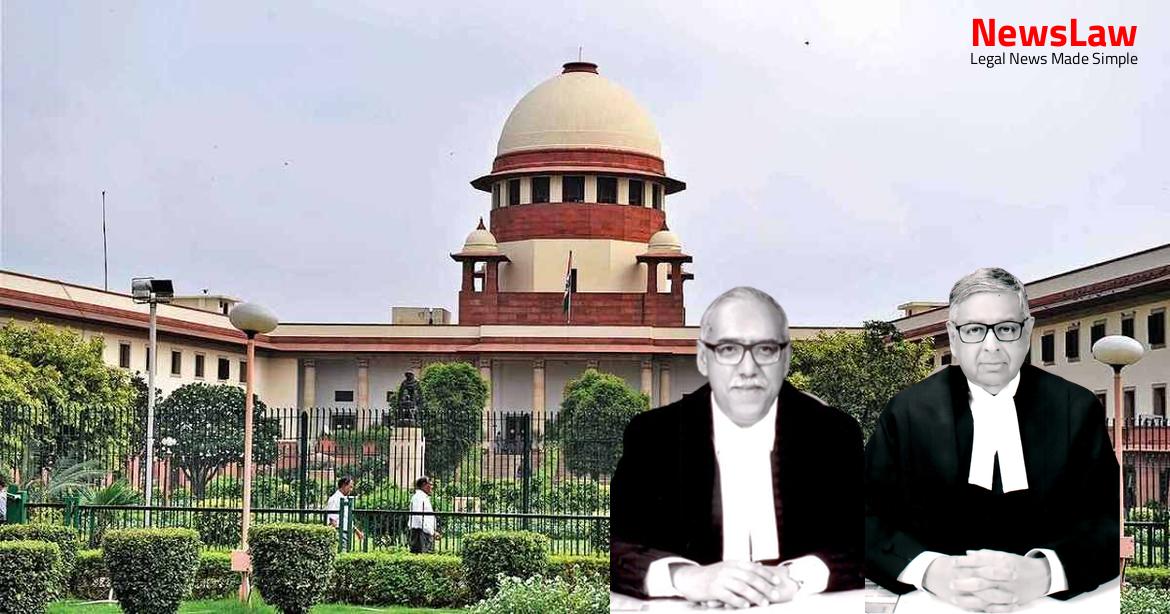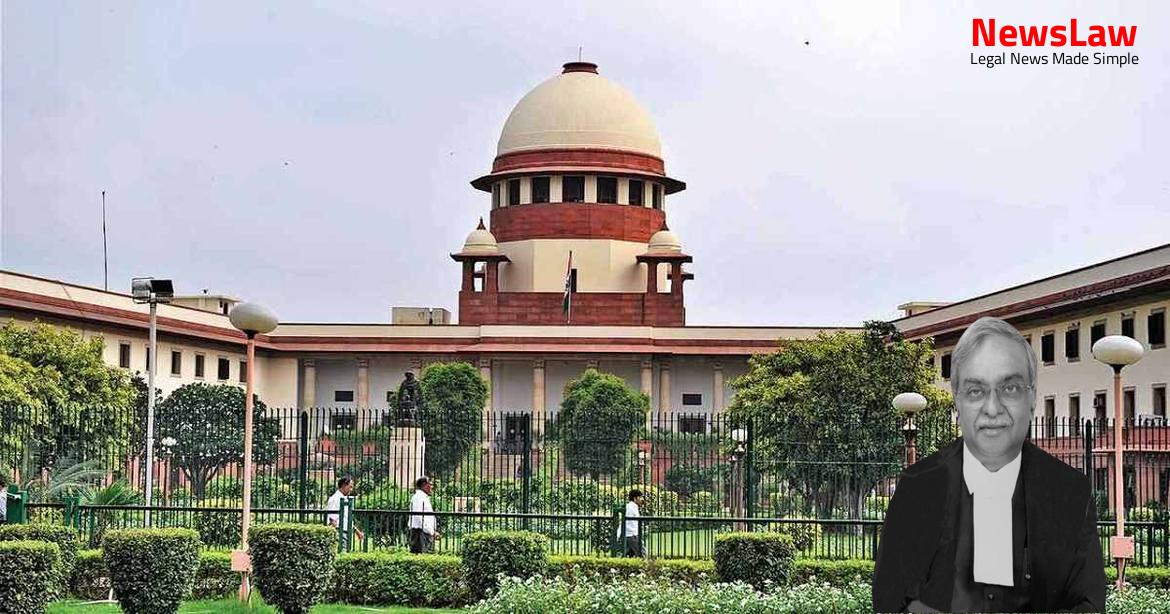In a significant ruling by the Supreme Court of India, the judgment regarding market allotment rules for dealers in Punjab markets emphasizes the legacy of Labha Ram’s case. The decision aims to uphold fairness and equity in the allotment process, ensuring that existing dealers are treated justly in the creation of new market areas.
Facts
- High Court granted some relief to the dealers in the second group of petitions decided in 2015 & 2016
- Civil Appeal Nos. 8015-8016/2019 @ SLP (C) Nos. 24397-24398 of 2010 and other appeals arise from judgments dated between 2009 and 2016
- Dealers who were in the old market applied for allotment of plots/shops in the new grain market, leading to the appeals
- Common questions of law in all the appeals are being disposed of by a common judgment
- Market boards have filed appeals before the Supreme Court after their applications were rejected, leading to writ petitions
- The first case challenges various provisions of the 2008 Rules and Rule 3(iii) and (iv) of the 1999 Rules
- 1999 Rules were notified post a judgment.
- Rule 3 of the 1999 Rules and its amendments in 2008 provided for the allotment of shops in markets.
- 50% of plots in any market to be auctioned and remaining 50% to be given at a premium above reserved price.
- Period of business reduced from 5 to 3 years under the 2008 Rules.
- Directed Government to fix a reasonable rate above the reserve price for older licensed dealers.
- Premium under 1999 Rules was 35% and under 2008 Rules, it is 5%.
- High Court judgments in 2015 and 2016 allowed proof of working in de-notified market yard without holding a license on the cut-off date.
- Original petitioners were licensed traders of agricultural produce operating in Mandis in Punjab.
- Punjab Agricultural Produce Markets Act, 1961 restricts such activities to Mandis or Markets set up for this purpose.
- Most petitioners were licensed dealers in old markets which were de-notified and new markets were established.
- High Court upheld the validity of the Rules.
- Shift of grain markets is necessary as towns or cities expand.
Also Read: Enforcement of Foreign Award: Case of Oscar Investments Limited and RHC Holding Private Limited
Arguments
- The appellants argue that the Rules go against the judgment in Labha Ram and Sons vs. State of Punjab and Others.
- Labha Ram’s case established that the government must provide sufficient accommodation to existing license dealers affected by the creation of new market areas.
- Existing dealers should not have to compete with new entrants as per Labha Ram’s case.
- Some dealers, operating for around 20 years, fell short of the Rs.5 lakhs turnover target in one year in the last three years.
- The requirement of Rs.5 lakhs turnover annually aims to ensure only active dealers obtain shops/plots.
- The Rules are deemed to violate the principles laid down in Labha Ram’s case.
- Labha Ram’s case was decided when there was no provision for preferential allotment to old dealers.
- Old dealers should be provided shops/plots in the new market at concessional rates as per court’s decision.
- A person doing business of less than 500 bags a year cannot claim entitlement to a shop at a concessional rate.
- Allotment of shop should not be a bounty or lottery for those transacting little business.
- Conditions of 3 years and having Rs. 5 lakhs turnover per financial year are reasonable and not violative of Article 14 of the Constitution.
- Dealers must comply with the Rules for allotment of shops in new markets.
- If dealers fail to comply with the Rules and conditions, they cannot be allotted shops.
Also Read: Case of Eligibility for Disability Pension: Air Force Officer’s Retirement
Analysis
- To prove turnover, Form ‘M’ is required to be produced as a daily return filed with the Market Committee/Board.
- Deviation from Rules only allowed if reasons are beyond control of dealer.
- Conditions for license renewal include having a license for 3 years and annual turnover of Rs. 5 lakhs in each of the three financial years.
- Power of relaxation must be read into the Rules for minor variations or situations beyond dealer’s control.
- Condonation of delay in renewal possible with valid reasons like involvement of a minor or incapacitation of the dealer.
- Rules need to be read equitably and in a humane manner.
- Constitutional validity of the Rules upheld, no violation of Constitution including Article 14 found.
- Renewal of license should be applied for one month before expiry, with a provision for renewal within 3 months of expiry.
- Rules provide a window for allotment to license holders whose licenses were renewed or obtained within 3 months of expiry.
- Primary evidence of turnover is Form ‘M’, followed by Form ‘H’ and ‘J’.
- Salutary conditions like the 3-year rule and minimum turnover requirement are necessary for allotment eligibility.
- Directions for upholding validity of 1999 and 2008 Rules, emphasizing the necessity of a valid license for more than 3 years and provision for renewal extension in certain cases.
- The case of Prem Chand Trilok Chand and Others vs. State of Haryana and Others involved similar observations as the present case.
- The three Judge Bench of the Court made similar remarks in this case as in the present case.
- The observations made in Prem Chand Trilok Chand and Others vs. State of Haryana and Others are relevant to the present matter.
- The list has been filed showing availability of a large number of plots in different Mandis in the State of Punjab for allotment.
- The ratio of the judgement highlights the availability of plots in Punjab for allocation purposes.
- This indicates that there are still numerous plots available for allotment in various Mandis in the state.
Also Read: Judgment by Supreme Court On Man Singh vs. State of India
Decision
- All appeals have been disposed of
- Any pending applications will also be disposed of
- A reconsideration must be done within 3 months
- The Board/Committee should reconsider cases with marginal deficiencies caused by reasons beyond the dealer’s control
Case Title: WALAITI RAM CHARAN DASS Vs. STATE OF PUNJAB .
Case Number: C.A. No.-008015-008016 / 2019



